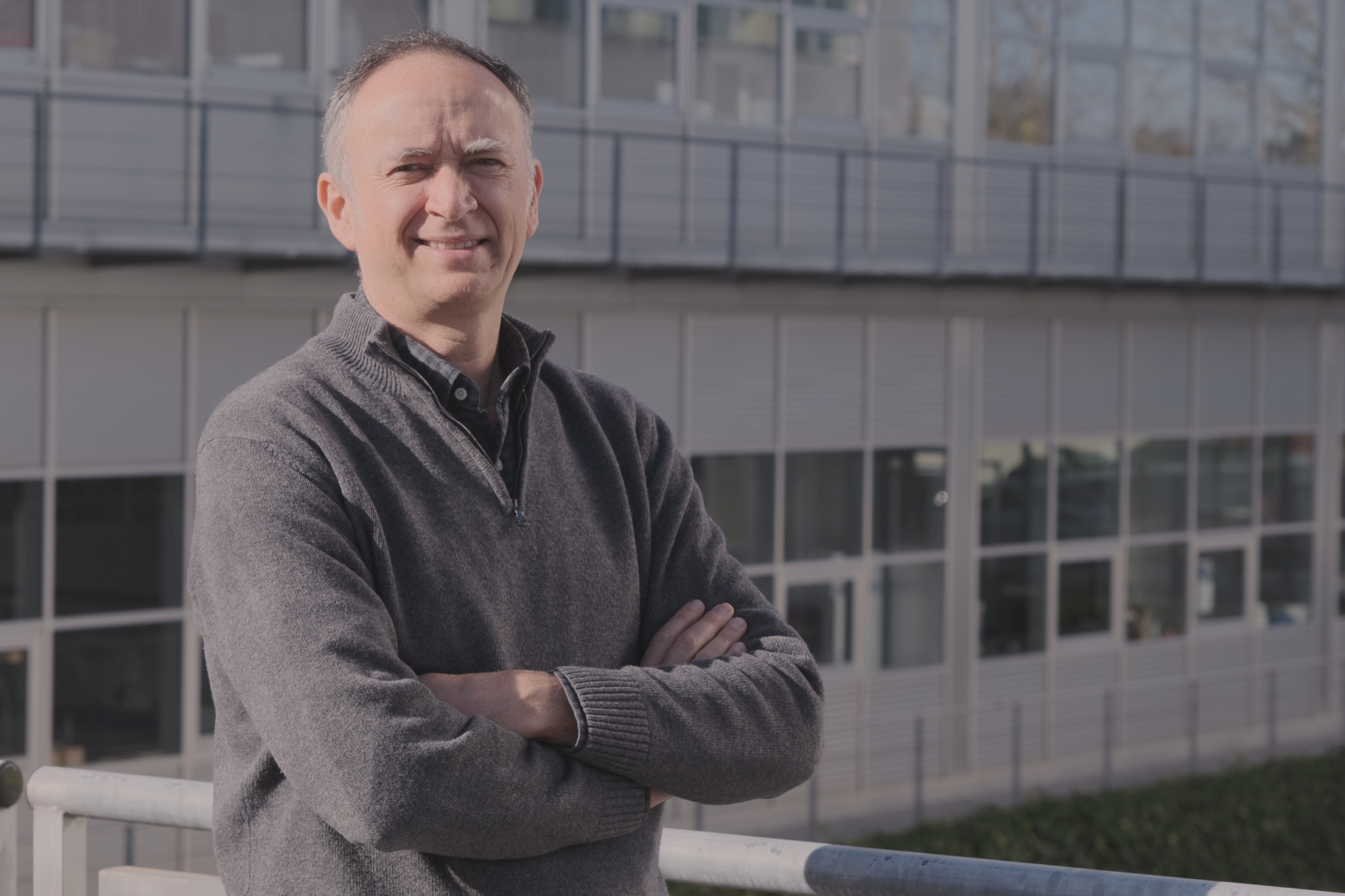 The change in leadership at CiQUS marks the beginning of a new era for the center, already established as a leading hub for research in Chemistry.
The change in leadership at CiQUS marks the beginning of a new era for the center, already established as a leading hub for research in Chemistry.
The Center for Research in Biological Chemistry and Molecular Materials (CiQUS) welcomes a new chapter. Last Thursday, March 13, Diego Peña took over as the Scientific Director, succeeding José Luis Mascareñas, who had held the position since 2014. This new appointment, which spans a four-year term with the possibility of extension, comes following a proposal by the CiQUS Governing Committee and a favorable report from the External Scientific Advisory Board.
The Scientific Director is pivotal to the center's mission, responsible for setting strategic and scientific priorities, managing institutional relations with other entities, and, with the support of the Deputy Director, overseeing executive functions that impact the center's overall activities.
"I accept this challenge with a mix of responsibility and enthusiasm," states Peña. "The aim is not only to maintain the level of excellence achieved so far but also to contribute to creating the conditions necessary for all CiQUS members to fulfill the center's mission and advance in their respective professional careers."
Towards the end of last year, CiQUS launched a call to identify candidates for the Scientific Director position among the center's Principal Investigators. Following this initial phase, the External Scientific Advisory Board evaluated the applications through a selection process that concluded with the approval of a proposal for the new scientific leadership by the Governing Committee. This proposal was ultimately submitted to the Chancellor of the University of Santiago de Compostela (USC) for formal appointment.
This transition concludes a phase during which the leadership team of José Luis Mascareñas and Dolores Pérez successfully transformed CiQUS into a leading center in Chemistry, positioning it among the world's top research institutions. Over more than a decade, Mascareñas and Pérez led the creation of a new research center model, and as a result, CiQUS is now a key player in the Network of Research Centers of the Galician University System (CIGUS Network). The new leadership will build upon this legacy, striving to maintain excellence and fulfill CiQUS's primary mission: advancing science at the frontier of knowledge.
Diego Peña Gil earned his degree in Chemistry in 1998 from the USC, where he also completed his doctoral thesis under the supervision of Profs. Enrique Guitián and Dolores Pérez. He conducted predoctoral stays with Professors Eric N. Jacobsen (1999, Harvard University), Paul Knochel (2000, LMU, Munich), and Antonio M. Echavarren (2001, UAM, Madrid). He later undertook a postdoctoral stay as a Marie Curie researcher in the group of Professor Ben L. Feringa (Nobel Prize in Chemistry 2016) at the University of Groningen (Netherlands), focusing on asymmetric catalysis and conducting brief stays with Hans de Vries at DSM (Geleen, Netherlands).
In 2004, he rejoined the USC as a Ramón y Cajal researcher and has been a Principal Investigator at CiQUS since its inception. In 2008, he was appointed Associate Professor, later advancing to Full Professor of Organic Chemistry in 2020 (currently on leave). In 2024, he secured a position as Oportunius Research Professor (GAIN) affiliated with the USC.
Peña received the Ignacio Ribas Medal from the Specialized Group in Organic Chemistry of the Royal Spanish Society of Chemistry (RSEQ) in 2018. In 2020, he was awarded an ERC Synergy Grant (MolDAM) along with Leo Gross (IBM Research Zurich) and Jascha Repp (Universität Regensburg). He was later honored with the Ernesto Viéitez Cortizo Research Award (2022) from the Royal Galician Academy of Sciences (RAGC), and in 2023, he received the Excellence in Research Award from the RSEQ. Last year, he was awarded the Antonio Casares Rodríguez Medal by the RAGC.
Peña has published over 150 scientific articles (>8,500 citations, h-index 49), including four publications in the journal Science and ten in Nature family journals. His primary research areas include the development of new synthetic methodologies, the preparation and study of nanographenes and other carbon materials, surface chemistry, and the manipulation of individual molecules.
The CiQUS holds the CIGUS recognition by the Xunta de Galicia, that accredits the quality and impact of its research, and receives financial support from the European Union through the Galicia FEDER Program 2021-2027.


